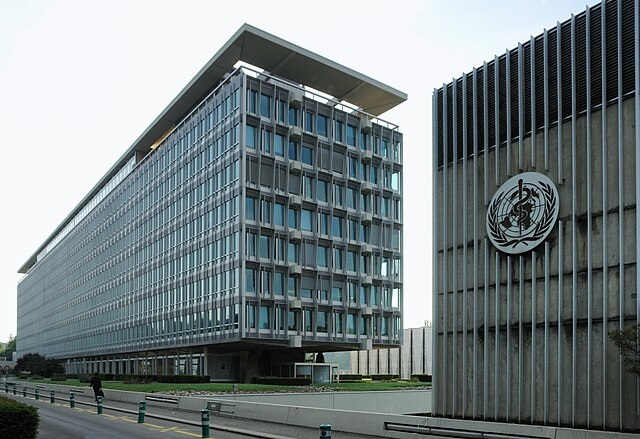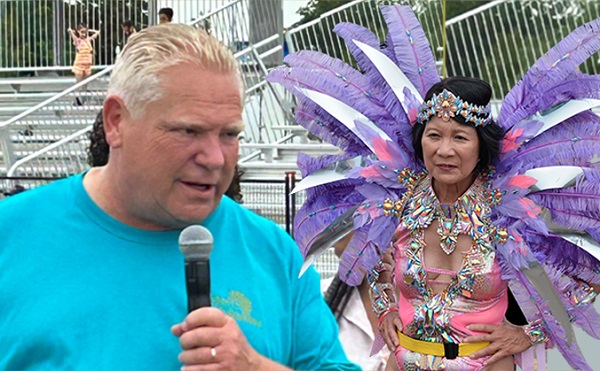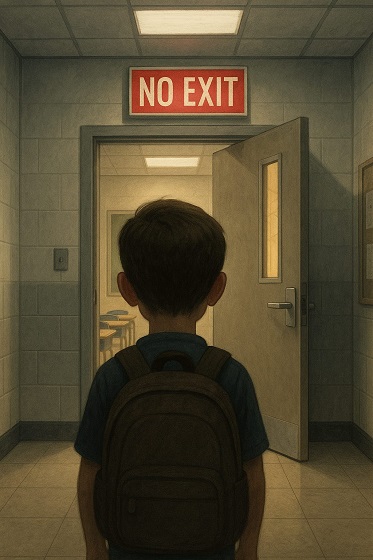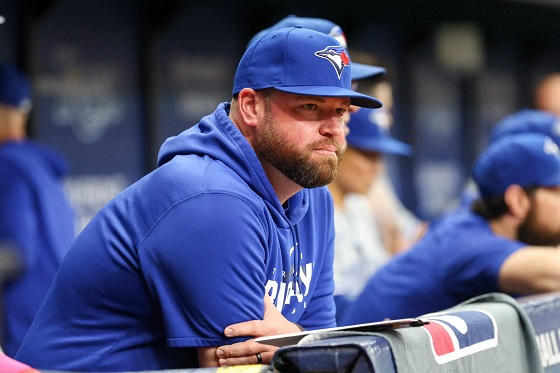Great Reset
The fundamental crisis with the WHO’s new international pandemic agreement

The WHO’s Managerial Gambit
From the Brownstone Institute
BY
The WHO is now proposing a new international pandemic agreement and amendments to the International Health Regulations. These proposals will make next time worse. Not because they override sovereignty, but because they will protect domestic authorities from responsibility. States will still have their powers. The WHO plan will shield them from the scrutiny of their own people.
On Friday, Bret Weinstein warned of impending tyranny from the World Health Organization. “We are in the middle of a coup,” the evolutionary biologist and podcaster told Tucker Carlson on X. The WHO’s new pandemic management regime will eliminate sovereignty, Weinstein said, and allow it to override national constitutions.
He’s right about tyranny and coups. But not about sovereignty or constitutions.
Technocrats learned a lot from Covid. Not how to avoid policy mistakes, but how to exercise control. Public authorities discovered that they could tell people what to do. They locked people down, closed their businesses, made them wear masks, and herded them to vaccination clinics. In some countries, people endured the most extreme restrictions on civil liberties in peacetime history.
The WHO is now proposing a new international pandemic agreement and amendments to the International Health Regulations. These proposals will make next time worse. Not because they override sovereignty, but because they will protect domestic authorities from responsibility. States will still have their powers. The WHO plan will shield them from the scrutiny of their own people.
Under the proposals, the WHO will become the directing mind and will of global health. It will have authority to declare public health emergencies. National governments will promise to do as the WHO directs. Countries will “undertake to follow WHO’s recommendations.” WHO measures “shall be initiated and completed without delay by all State Parties…[who] shall also take measures to ensure Non-State Actors [private citizens and domestic businesses] operating in their respective territories comply with such measures.” Lockdowns, quarantine, vaccines, surveillance, travel restrictions, and more will be on the table.
That sounds like a loss of sovereignty, but it is not. Sovereign states have exclusive jurisdiction in their own territory. WHO recommendations cannot be directly enforced in American courts. Sovereign nations can agree to follow the authority of international organizations. They can undertake to tie their own hands and to fashion their domestic laws accordingly.
The WHO proposals are a shell game. The scheme will provide cover to domestic public health authorities. Power will be ubiquitous but no one will be accountable. Citizens will lack control over the governance of their countries, as they already do. The danger that confronts us is still our own sprawling discretionary administrative state, soon to be boosted and camouflaged by an unaccountable international bureaucracy.
When countries make treaties, they make promises to each other. International law may regard those promises as “binding.” But they are not binding in the same sense as a domestic contract. International law is a different animal from domestic law. In Anglo-American countries, the two legal systems are distinct.
International courts cannot enforce treaty promises against unwilling parties in the same way that a domestic court can enforce contractual promises. International law is formalized international politics. Countries make promises to each other when it is in their political interests to do so. They keep those promises on the same criteria. When they don’t, political consequences sometimes follow. Formal legal consequences rarely do.
Nevertheless, the idea is to persuade the public that their governments must obey the WHO. Binding recommendations legitimize the heavy hands of domestic governments. Local officials will be able to justify restrictions by citing global duties. They will say that WHO directives leave them no choice. “The WHO has called for lockdowns, so we must order you to stay in your home. Sorry, but it’s not our call.”
During Covid, authorities tried to censor dissenting views. Despite their best efforts, skeptics managed to speak out. They offered alternative explanations in podcasts, videos, declarations, research papers, columns, and tweets. For many people, they were the source of sanity and truth. But next time things may be different. Under the new pandemic regime, countries will commit to censoring “false, misleading, misinformation or disinformation.”
As Weinstein put it, “Something is quietly moving just out of sight, in order that we will not have access to these tools the next time we face a serious emergency. … What [the WHO] wants are the measures that would have allowed them to silence the podcasters, to mandate various things internationally in a way that would prevent the emergence of a control group that would allow us to see harms clearly.”
The WHO documents will not override constitutions in Anglo-American countries. In the United States, the First Amendment will still apply. But the meaning of constitutions is not static. International norms can influence how courts read and apply constitutional provisions. Courts can take account of developing international standards and customary international law. The WHO proposals would not replace or define the meaning of constitutional rights. But they would not be irrelevant either.
The WHO is not undermining democracy. Countries have done that over time by themselves. National governments must approve the new plan, and any can opt out as they wish. Without their agreement, the WHO has no power to impose its dictates. Not all countries may be keen on all the details. The WHO proposals call for massive financial and technical transfers to developing countries. But climate change pacts do too. In the end rich countries embraced them anyway. They were keen to virtue-signal and justify their own climate boondoggles. Most can be expected to sign on to the WHO gambit too.
Countries who do so retain the sovereignty to change their minds. But leaving international regimes can be hellishly difficult. When the UK belonged to the European Union, it agreed to be subject to EU rules on all manner of things. It remained a sovereign country and could decide to get out from under the EU’s thumb. But Brexit threatened to tear the country apart. Having the legal authority to withdraw does not mean that a country is politically able to do so. Or that its elites are willing, even if that’s what its people want.
Numerous critics have made the same allegations as Weinstein, that the WHO’s regime will eliminate sovereignty and override constitutions. Brownstone writers have done so, for example, here and here. These allegations are easy to dismiss. Tedros Adhanom Ghebreyesus, the Director-General of the WHO, has repeatedly said that no country will cede sovereignty to the WHO. Reuters, the Associated Press, and other mainstream news outlets have done “fact checks” to debunk the claim. Saying that the WHO will steal sovereignty allows critics to be discredited as conspiracy theorists. It distracts from the game that is afoot.
The WHO proposals will protect power from accountability. National governments will be in on the plan. The people are the problem they seek to manage. The new regime will not override sovereignty but that is small comfort. Sovereignty provides no protection from your own authoritarian state.
Bruce Dowbiggin
DEI Or Die: Out With Remembrance, In With Replacement

“Thank you to those so often forgotten by the politics of our city who made this movement their own. I speak of Yemeni Bodega owners and Mexican abuelas, Senegalese taxi drivers and Uzbek nurses, Trinidadian line cooks and Ethiopian aunties”.- new NYC mayor Zohran Mamdami
The new mayor’s effusive tribute to immigrants is very on-brand for the Woke Left. Coming as it did on the week where Canadians’ remembered the sacrifice of the over one hundred thousand who “died to make the world free” in WWI, WWII and Korea— even as their homes are squeezed between hereditary land rights and Justin Trudeau’s holiday camp.
For Boomers that battle sacrifice has underpinned their lifestyle for most of the past 75 years or so. No matter how cynical or hipster the Boomer, the phrase “They died to make the world free” was the Gorilla Glue holding Western civilizations together. Whether you agreed or not, you acknowledged its pre-eminence in society.
Those who annually recall family members who’d made the ultimate sacrifice underscore that “they died to make the world free” is foundational in their national myth making. For example, our younger son placed roses on my uncle’s grave in the Commonwealth war cemetery near Hanover, Germany. He then delivered the petals to his grandmother to acknowledge the loss of her brother.

These rituals of sacrifice were everywhere till the early decades of the twenty-first century when the demographics of declining birth rates in the West combined with aggressive immigration— both sanctioned and illegal— to create the Beirut described by mayor Mandami upon election. He was talking about NYC, but it could have been Toronto, Montreal or Vancouver. But you are free to ask what freedom means in this context.
North America in particular has long encouraged immigration. It was typically combined with assimilation in the doctrines used by governments of the day. People from around the globe arrived in the West and aspired to the cultural and financial modes they discovered. For one young Ukrainian boy we knew the figure of Frank Mahovlich, son of Croatian immigrants, on the Toronto Maple Leafs was proof that he could belong in his new society.
But somewhere along the way the suicidal empathy of progressives— combined with a need for low-income workers for corporations— loosened the expectations for those arriving in the West. In Canada, prime minster Justin Trudeau adopted Yan Martel’s diversity model of Canada as a travellers’ hotel. No longer would newcomers need to assimilate.
They could live side-by-side with ancestors of original inhabitants while still recreating their former homelands. In time the bureaucracy— and revenge of the cradle— would replace the cranky white people with a more malleable electorate. It was Replacement Theory.
The Canadian boys going over the top at Vimy or taking off in their Lancaster bombers would never have foreseen this as they risked their lives. They couldn’t countenance the people they’d fought for throwing away their sacrifice on a pandering scheme like DEI (diversity, equality, inclusion) which replaced merit with settler guilt in hiring decisions.
When government admonitions to accept their societal revolution failed to produce enough newcomer guilt, social media filled the gap. Remember the drowned Syrian boy on the beach in 2015? The uproar about Canada’s immigration policies helped unseat Steven Harper and install a trust-fund puppet in the PMO. And it opened the floodgates that sent Canada from 35 million to 42.5 population in a decade.
As Mark Steyn observes, “Winston Churchill said we shall fight them on the beaches; his grandson Rupert Soames set up the highly lucrative business model whereby we welcome them on the beaches …and then usher them to taxpayer-funded four-star hotels with three meals a day and complimentary cellphone. That’s the story of the post-war west in three generations of one family.”
Recent reports show that many top American corporations are moving away from DEI back to merit-based hiring. But Canada’s government, led by its Woke academic and culture sectors, remains stubbornly fixed on the DEI model. That obsession keeps the corporate side from emulating their American counterparts.
The tell that DEI is far from dead can be seen in how the advertising world has doubled down on the orthodoxy of majority male whites bad/ everyone else good. In what is clearly a political, not profitable approach, minorities, mixed-race couples and women are featured in commercials in numbers far disproportionate to their percentage of the population.
A blend of LGBTQ and Rousseau’s The Noble Savage has produced The Church Lady come to the 2020s. Upper-class blacks are portrayed as authority figures while white males are hillbilly figures of ridicule. This is not to placate those communities but to assuage the guilt felt by educated white liberals.
Mixed-race commercials now mandate that virtually no same-race figures be allowed to be paired on-camera. (Having the ironic effect of white liberals telling the minorities they worship that they are not worthwhile unless in combination with the evil settler demographic.)

It’s the same in movies and TV which used to complain about cultural appropriation but now suddenly place racial and gender-inappropriate actors in period roles that are clearly specific to whites and males. For example, Netflix’s new series Death by Lightning is set in Chicago, 1880 – and this foreground establishing scene pops up.:
•an Asian woman,
•two Black men,
•and a one-legged man
-
all walking together. @StutteringCraig estimates the odds of this DEI dream at roughly 1 in 640,000. No matter. Authenticity is so yesterday.
The DEI obsession has pilled over into traditional Remembrance Day ceremonies that were marred by land acknowledgements and slavery references (slavery was banned in Canada 45 years before it became a nation.) Which led to CBC running a story on the Palestinian flag being raised at Toronto city hall on Remembrance Day.
In B.C. premier David Eby has declared that Canada now needs a power-sharing with the Cowichan and their confederates. American politics is also loath to give up their DEI dogma. In one real-life example leftist radio host Stephanie Miller kissed the feet of unhinged Democrat Rep. Jasmine Crockett. “Why, yes I DID kiss the sneakers of @JasmineForUS and I DO worship the ground she walks on! And she was LOVELY about it!” The laces fetishists think this performative theatre will always be thus. It won’t.

“The Venetian Republic lasted 1,100 years – and ninety-nine per cent of North Americans have never heard of it. But, on present demographic and fiscal trends, that’s four times longer than the United States is likely to make it,” Steyn observes.
“Walk around New York: The Yemeni-Mexican-Senegalese-Uzbek-Trinidadian-Ethiopians are the future. And you’re not.”
Bruce Dowbiggin @dowbboy is the editor of Not The Public Broadcaster A two-time winner of the Gemini Award as Canada’s top television sports broadcaster, his new book Deal With It: The Trades That Stunned The NHL And Changed hockey is now available on Amazon. Inexact Science: The Six Most Compelling Draft Years In NHL History, his previous book with his son Evan, was voted the seventh-best professional hockey book of all time by bookauthority.org . His 2004 book Money Players was voted sixth best on the same list, and is available via brucedowbigginbooks.ca.
Censorship Industrial Complex
EU’s “Democracy Shield” Centralizes Control Over Online Speech

Presented as a defense of democracy, the plan reads more like the architecture of a managed reality.
|
European authorities have finally unveiled the “European Democracy Shield,” we’ve been warning about for some time, a major initiative that consolidates and broadens existing programs of the European Commission to monitor and restrict digital information flows.
Though branded as a safeguard against “foreign information manipulation and interference (FIMI)” and “disinformation,” the initiative effectively gives EU institutions unprecedented authority over the online public sphere.
At its core, the framework fuses a variety of mechanisms into a single structure, from AI-driven content detection and regulation of social media influencers to a state-endorsed web of “fact-checkers.”
The presentation speaks of defending democracy, yet the design reveals a machinery oriented toward centralized control of speech, identity, and data.
One of the more alarming integrations links the EU’s Digital Identity program with content filtering and labelling systems.
The Commission has announced plans to “explore possible further measures with the Code’s signatories,” including “detection and labelling of AI-generated and manipulated content circulating on social media services” and “voluntary user-verification tools.”
Officials describe the EU Digital Identity (EUDI) Wallet as a means for “secure identification and authentication.”
In real terms, tying verified identity to online activity risks normalizing surveillance and making anonymity in expression a thing of the past.
The Democracy Shield also includes the creation of a “European Centre for Democratic Resilience,” led by Justice Commissioner Michael McGrath.
Framed as a voluntary coordination hub, its mission is “building capacities to withstand foreign information manipulation and interference (FIMI) and disinformation,” involving EU institutions, Member States, and “neighboring countries and like-minded partners.”
The Centre’s “Stakeholder Platform” is to unite “trusted stakeholders such as civil society organizations, researchers and academia, fact-checkers and media providers.”
In practice, this structure ties policymaking, activism, and media oversight into one cooperative network, eroding the boundaries between government power and public discourse.
Financial incentives reinforce the system. A “European Network of Fact-Checkers” will be funded through EU channels, positioned as independent yet operating within the same institutional framework that sets the rules.
The network will coordinate “fact-checking” in every EU language, maintain a central database of verdicts, and introduce “a protection scheme for fact-checkers in the EU against threats and harassment.”
Such an arrangement destroys the line between independent verification and state-aligned narrative enforcement.
The Commission will also fund a “common research support framework,” giving select researchers privileged access to non-public platform data via the
Digital Services Act (DSA) and Political Advertising Regulation.
Officially, this aims to aid academic research, but it could also allow state-linked analysts to map, classify, and suppress online viewpoints deemed undesirable.
Plans extend further into media law. The European Commission intends to revisit the Audiovisual Media Services Directive (AVMSD) to ensure “viewers – particularly younger ones – are adequately protected when they consume audiovisual content online.”
While framed around youth protection, such language opens the door to broad filtering and regulation of online media.
Another initiative seeks to enlist digital personalities through a “voluntary network of influencers to raise awareness about relevant EU rules, including the DSA.” Brussels will “consider the role of influencers” during its upcoming AVMSD review.
Though presented as transparent outreach, the move effectively turns social media figures into de facto promoters of official EU messaging, reshaping public conversation under the guise of awareness.
The Shield also introduces a “Digital Services Act incidents and crisis protocol” between the EU and signatories of the Code of Practice on Disinformation to “facilitate coordination among relevant authorities and ensure swift reactions to large-scale and potentially transnational information operations.”
This could enable coordinated suppression of narratives across borders. Large platforms exceeding 45 million EU users face compliance audits, with penalties reaching 6% of global revenue or even platform bans, making voluntary cooperation more symbolic than real.
A further layer comes with the forthcoming “Blueprint for countering FIMI and disinformation,” offering governments standardized guidance to “anticipate, detect and respond” to perceived information threats. Such protocols risk transforming free expression into a regulated domain managed under preemptive suspicion.
Existing structures are being fortified, too. The European Digital Media Observatory (EDMO), already central to “disinformation” monitoring, will receive expanded authority for election and crisis surveillance. This effectively deepens the fusion of state oversight and online communication control.
Funding through the “Media Resilience Programme” will channel EU resources to preferred outlets, while regulators examine ways to “strengthen the prominence of media services of general interest.”
This includes “impact investments in the news media sector” and efforts to build transnational platforms promoting mainstream narratives. Though described as supporting “independent and local journalism,” the model risks reinforcing state-aligned voices while sidelining dissenting ones.
Education and culture are not exempt. The Commission plans “Guidelines for teachers and educators on tackling disinformation and promoting digital literacy through education and training,” along with new “media literacy” programs and an “independent network for media literacy.”
While such initiatives appear benign, they often operate on the assumption that government-approved information is inherently trustworthy, conditioning future generations to equate official consensus with truth.
Viewed as a whole, the European Democracy Shield represents a major institutional step toward centralized narrative management in the European Union.
Under the language of “protection,” Brussels is constructing a comprehensive apparatus for monitoring and shaping the flow of information.
For a continent that once defined itself through open debate and free thought, this growing web of bureaucratic control signals a troubling shift.
Efforts framed as defense against disinformation now risk becoming tools for suppressing dissent, a paradox that may leave European democracy less free in the name of making it “safe.”
|
|
|
|
You read Reclaim The Net because you believe in something deeper than headlines; you believe in the enduring values of free speech, individual liberty, and the right to privacy.
Every issue we publish is part of a larger fight: preserving the principles that built this country and protecting them from erosion in the digital age.
With your help, we can do more than simply hold the line: we can push back. We can shine a light on censorship, expose growing surveillance overreach, and give a voice to those being silenced.
If you’ve found any value in our work, please consider becoming a supporter.
Your support helps us expand our reach, educate more people, and continue this work.
Please become a supporter today.
Thank you for your support.
|
-

 Business2 days ago
Business2 days agoCarney shrugs off debt problem with more borrowing
-

 Alberta1 day ago
Alberta1 day agoWhen Teachers Say Your Child Has Nowhere Else to Go
-

 Automotive2 days ago
Automotive2 days agoThe high price of green virtue
-

 Addictions1 day ago
Addictions1 day agoCanada is divided on the drug crisis—so are its doctors
-

 Bruce Dowbiggin1 day ago
Bruce Dowbiggin1 day agoMaintenance Mania: Since When Did Pro Athletes Get So Fragile?
-

 Daily Caller1 day ago
Daily Caller1 day agoProtesters Storm Elite Climate Summit In Chaotic Scene
-

 MAiD2 days ago
MAiD2 days agoQuebec has the highest euthanasia rate in the world at 7.4% of total deaths
-

 National1 day ago
National1 day agoConservative bill would increase penalties for attacks on places of worship in Canada









